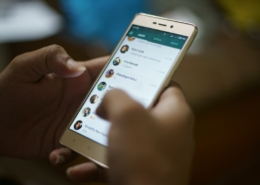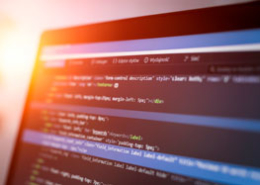Bills propose to broaden internet regulation in Brazil
It was recently proposed Bill 18/217 (HR) which states pornographic revenge as a crime and Bill 169/2017 (S) that determines blocking of internet websites that promote crime.
It was recently proposed Bill 18/217 (HR) which states pornographic revenge as a crime (public exposure of sexual intimacy) and Bill 169/2017 (S) that determines blocking of internet websites that promote crime. These are examples of the need to review the legal system towards this new digital reality.
The Global Risks Report of 2018 published by the World Economic Forum puts cyber-attacks as one of the 5 main global risks with greater probability to happen this year. Although pointed as a risk, this type of attack is already a reality that affects people’s life all around the world. As an example, the attack named WannaCry reached 300,000 computers in 150 countries. According to the report, 64% of the malicious e-mails sent between July and September 2017 used the same mechanism as the WannaCry used; the ransomware (the virus encrypts data from the victim’s computer in order to charge a ransom to release them).
Although this scenario already represents a really critic situation for those who are attacked, cyber-attacks have been affecting not only individuals, but populations. An example was the attack in 2015 to the energy distribution system in Ukraine that left 230,000 people without energy. Another example was the attack to the SWIFT system that is responsible for interbank communications, allowing the theft of US$ 81 million from the Central Bank of Bangladesh. The World Economic Forum estimates that cyber-attacks lead to a loss of US$ 445 billion per year, which surpasses the GDP of many countries around the world.
This risk also started to impact Brazil directly. The WannaCry reached more than 1,000 computers in the Sao Paulo Justice Court in the city of Sao Paulo. In consequence of WannaCry, the Regional Labor Court removed its website from the internet preventively for 24 hours. Besides that, Congress people have been having their Whatsapp accounts cloned not only leading to financial losses, but also putting the political system in the country in risk.
The internet was revolutionary in the way we communicate, although it brought security risks that have been demanding responses from the State. One risk is the possibility of not being identified in the web, which is an incentive for illegal practices. This invisibility created by the internet makes it difficult for the State to combat the illegal practices specially because the criminal law is based in the capacity of identification of who is the criminal and who is the victim.
Laws towards the combat of these practices have been gaining space. These Laws obtained more strength by the approval of Law No. 12,737/2012 that criminalizes the invasion of digital devices in order to obtain illicit advantages. The Bill enacted into Law was in evidence from the moment some private pictures of a famous actress (Carolina Dieckmann) stored on her mobile were publicly released. At that time, The Bill was presented by Deputy Paulo Teixeira (PT/SP), who coincidentally had his Whatsapp account now cloned.
Due to the level of public exposure, politicians, authorities, and famous people have become targets of criminal actions in the internet because their personal data have a high value for hackers, who use them to commit other crimes or even to use them as a bargain in search of illicit advantages.
The Project that aims to turn pornographic revenge as a crime was proposed in the House of Representatives by Deputy Joao Arruda (MDB/PR) based on the struggles from journalist Rose Leonel, who was a victim of pornographic revenge. She was one of the first victims that got the aggressor condemned. In result, Rose created the Marias da Internet NGO that gives support to victims of this practice, that can finally, become a crime.
The project started the procedures in 2013 as Bill 5,555/2013 to which 5 other projects were attached (Bill 5,822/2013, Bill 6,630/2013, Bill 6,713/2013, Bill 6,831/2013, and Bill 7,377/2014). The substitutive project that gathered earlier propositions suggests alteration in the Criminal Code including pornographic revenge as an additional type of domestic violence against women. The project was approved by the Justice and Constitution Committee and by the Human Rights Committee, both reported by Senator Gleisi Hoffmann (PT/PR). It was also approved by the Senate and now it is up for analysis and deliberation in the House of Representatives. In case it is approved without alterations, it will be sent for Presidential approval.
The project that aims to criminalize the pornographic revenge has a broad public support and had been also approved in public consultation made by the Senate in its website. In the other hand, the Senate Bill 169/2017, that is destined to allow the block of sites that promote criminal practices has been generating debates and discussions contrary to the project. The text is from Senator Ciro Nogueira (PP/PI) while Senator Airton Sandoval (MDB/SP) is its Rapporteur. The Bill proposes to amend the Law that regulates Internet in Brazil to propose a list of hypotheses in which judges are allowed to block websites and applications. While entities of the civil society see the proposed text as a threat to liberty of expression, supporting entities of the Copyright Law see it as a protection against piracy, even though the Ministry of Culture said the text is not the best solution for the problem. Moreover, the Federal Prosecution Office is against the Bill because this may reduce the range of action the Office has to block Internet as it is allowed nowadays. This subject was debated in a public hearing by specialists last December and is currently under open public consultation at the Senate in order to measure the population´s support. The Bill is still awaiting the presentation of the rapporteur’s opinion to be debated it in the Committee and shall also be debated by Justice and Constitution Committee before debates on the Senate floor.
In 2015 a Parliamentary Committee of Inquiry (CPI) was appointed to debate the evolution of digital crimes in Brazil and it resulted in the Bill 5,204/2016, which was similar to the content of Senator Ciro Nogueira’s proposal. Anyway, the Bill is still in standby on the Science and Technology, Communications, and IT Committee (CCTCI) from the House of Representatives. Before the sending of the Bill to the CCTCI, the text was attached to Bill 5,172/2016 proposed by Representative Felipe Bornier, aimed at preventing message apps from being blocked similar to what Whatsapp suffered by judicial orders. On the CCTCI the Bill 5,204/2016 was attached to the Bill 5,130/2016 that excludes the prohibition or any temporary suspension of internet supplier’s activities as a form of penalty from the Brazilian Civil Rights Framework for the Internet. The author is also the Representative Joao Arruda (MDB/PR), who can be recognized as a Congressman interested in digital themes. In any case, the Bill 5,130/2016 has been requested to run separately from the Bill 5,204/2016 for twice, in which one request has been already denied.
To sum up, the fact that our lives have been embedded by the virtual environment will request from the Congress even more towards these emerging problems, such as the ones indicated by the Global Risks Report published by the World Economic Forum this year. It is possible to see that such problems reach out not only individuals, but entire populations as well. They can make a personal drama turn into an instrument to combat against a social problem as well as to induce Congress people to be the basis to support changes, since they have been also directly affected on these issues.
The Legislative debate around this subject is a one-way path in which the society will need to have more attention to prevent itself from surprises and bringing information to the Congress in order to enact Laws that can balance protection of the human being and the freedom of initiative, which were responsible for expanding the use of the internet and its positive outcomes as we know today.
About The Author
Category: [xyz-ips snippet=”Categoria”]
[xyz-ips snippet=”Tag”]
Posted in: [xyz-ips snippet=”Data”]
See also
 https://correiadasilva.com.br/wp-content/uploads/2021/04/citacao-via-whatsapp-1.jpg
667
1000
Correia da Silva
https://correiadasilva.com.br/wp-content/uploads/2019/07/Logo-csa.png
Correia da Silva2021-04-20 08:00:412021-04-20 06:44:00Quote Made by WhatsApp
https://correiadasilva.com.br/wp-content/uploads/2021/04/citacao-via-whatsapp-1.jpg
667
1000
Correia da Silva
https://correiadasilva.com.br/wp-content/uploads/2019/07/Logo-csa.png
Correia da Silva2021-04-20 08:00:412021-04-20 06:44:00Quote Made by WhatsApp https://correiadasilva.com.br/wp-content/uploads/2020/03/imagem-blog-3.jpg
187
295
Correia da Silva
https://correiadasilva.com.br/wp-content/uploads/2019/07/Logo-csa.png
Correia da Silva2020-03-04 14:52:112020-03-04 14:52:11Federal taxation on remittance abroad in the acquisition of a software license for commercialization or distribution
https://correiadasilva.com.br/wp-content/uploads/2020/03/imagem-blog-3.jpg
187
295
Correia da Silva
https://correiadasilva.com.br/wp-content/uploads/2019/07/Logo-csa.png
Correia da Silva2020-03-04 14:52:112020-03-04 14:52:11Federal taxation on remittance abroad in the acquisition of a software license for commercialization or distribution https://correiadasilva.com.br/wp-content/uploads/2020/01/imagem-blog-37.jpg
187
295
Correia da Silva
https://correiadasilva.com.br/wp-content/uploads/2019/07/Logo-csa.png
Correia da Silva2020-01-29 18:25:252020-01-29 18:25:25The Attorney General’s Office of the National Treasury – PGFN, regulates the disclosure of the list of debtors
https://correiadasilva.com.br/wp-content/uploads/2020/01/imagem-blog-37.jpg
187
295
Correia da Silva
https://correiadasilva.com.br/wp-content/uploads/2019/07/Logo-csa.png
Correia da Silva2020-01-29 18:25:252020-01-29 18:25:25The Attorney General’s Office of the National Treasury – PGFN, regulates the disclosure of the list of debtors https://correiadasilva.com.br/wp-content/uploads/2020/01/imagem-blog-36.jpg
187
295
Correia da Silva
https://correiadasilva.com.br/wp-content/uploads/2019/07/Logo-csa.png
Correia da Silva2020-01-28 15:24:382020-01-28 15:25:40Full payment of the tax debt extinguishes the punishment of the accused of tax evasion crime
https://correiadasilva.com.br/wp-content/uploads/2020/01/imagem-blog-36.jpg
187
295
Correia da Silva
https://correiadasilva.com.br/wp-content/uploads/2019/07/Logo-csa.png
Correia da Silva2020-01-28 15:24:382020-01-28 15:25:40Full payment of the tax debt extinguishes the punishment of the accused of tax evasion crime
